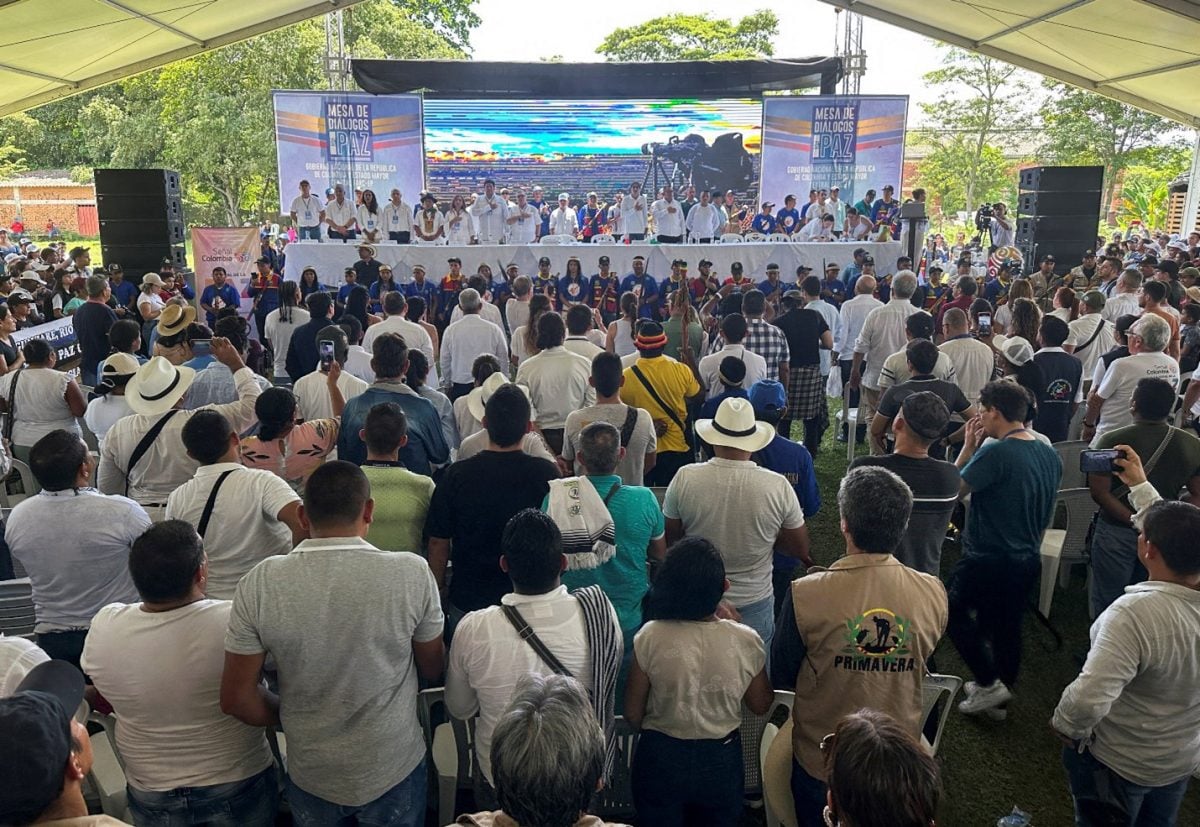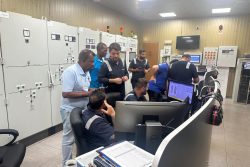TIBU, Colombia (Reuters) – Colombia’s government and the country’s largest group of dissident former FARC rebels on Sunday suspended offensive actions and celebrated the start of a peace process meant to end the group’s role in almost six decades of internal conflict, the rebel group announced.
The negotiations with the Estado Mayor Central (EMC) – a dissident group of the now-demobilized Revolutionary Armed Forces of Colombia (FARC) guerrillas – form part of President Gustavo Petro’s efforts to reach “total peace.”
The EMC rejected a 2016 peace deal with the state that ended the FARC’s role in the conflict, which has killed at least 450,000 people and displaced millions.
The government will issue a formal ceasefire decree on Oct. 16, the day when the exploratory process concludes and peace talks formally begin, the Colombian government and EMC rebels said in a joint statement Sunday.
The two sides have said the ceasefire will initially last 10 months, but they did not mention its length in the statement.
The event took place in Tibu, in Norte de Santander province, the scene of frequent clashes between Colombia’s military and a plethora of illegally armed groups and where vast swathes of land are covered in crops of coca, the chief ingredient in cocaine.
The EMC currently has some 3,530 members – 2,180 combatants and 1,350 others – in regions across Colombia where illicit trades like drug trafficking and illegal gold mining occur, according to security sources.
Colombia’s government in May partially suspended a bilateral ceasefire it had entered with the EMC in January following the murder of four indigenous minors and ordered the reactivation of military operations against the group in the southeast of the country.
The government is also pushing peace efforts with the Segunda Marquetalia, another FARC dissident group with over 1,600 members. Experts have warned that negotiations with the Segunda Marquetalia would face legal issues because the group’s leaders accepted and then abandoned the 2016 deal.
The National Liberation Army (ELN), another rebel group, is currently in peace talks with the government and holding a six-month bilateral ceasefire that began in August.






